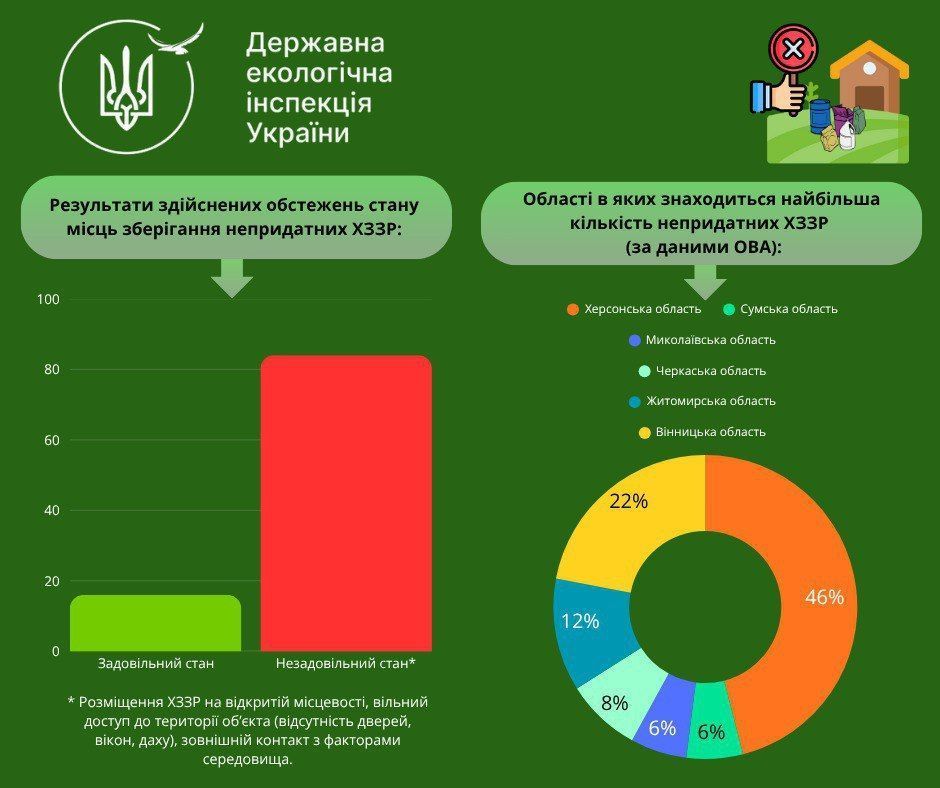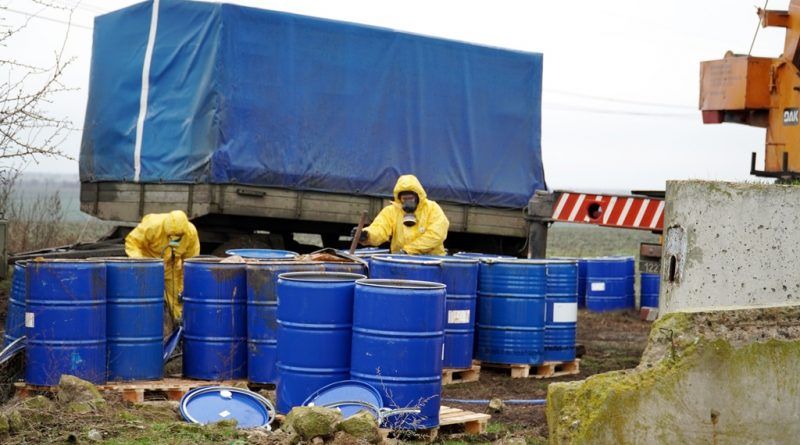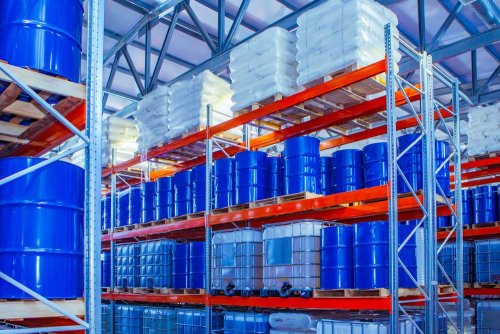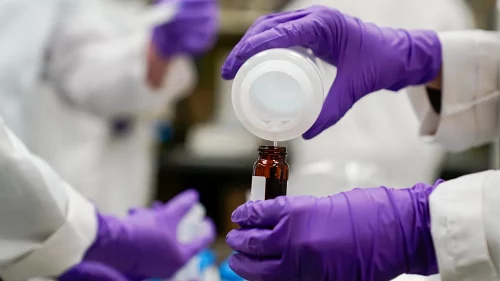In Ukraine, more than 80% of unsuitable and prohibited plant protection products (PPPs) are stored in inappropriate conditions, with the largest quantities located in the Kherson, Vinnytsia, and Zhytomyr regions.
This was reported by the State Environmental Inspection (SEI).
According to the National Waste Management Plan until 2033, about 8.5 thousand tons of such substances are subject to disposal in Ukraine. The most polluted areas are rural areas, where agrochemicals were stored without proper conditions and accounting.
The SEI said that these toxic substances are often stored in unsuitable premises or even in the open air. This poses risks to soil, groundwater, and human health, as chemicals can penetrate ecosystems, accumulate in organisms, and even react to form new unknown compounds. Experts reminded that their uncontrolled accumulation poses a serious environmental and sanitary threat.
According to records, there are no unsuitable PPPs in a number of regions, including Odesa, Ternopil, Volyn, Lviv, Kharkiv, Dnipropetrovsk, Kirovohrad, Ivano-Frankivsk, and Chernivtsi. They have already been disposed of.
The information received from territorial and interregional territorial bodies regarding the inspection of storage sites for prohibited and expired agrochemicals and inventory was presented by environmental inspectors in an infographic:

According to it, about 82% of such toxic substances are stored in inappropriate conditions. The largest number of unsuitable PPPs is currently located in the Kherson (46%), Vinnytsia (22%), and Zhytomyr (12%) regions.
As EcoPolitic reported earlier, the Pervomaisk District Prosecutor's Office filed a lawsuit against the Mykolaiv Regional Military Administration and the Mykolaiv Regional State Administration's Department of Ecology and Natural Resources for their inaction regarding 19 containers of pesticides that have been stored in inappropriate conditions for several years and should have been disposed of.





